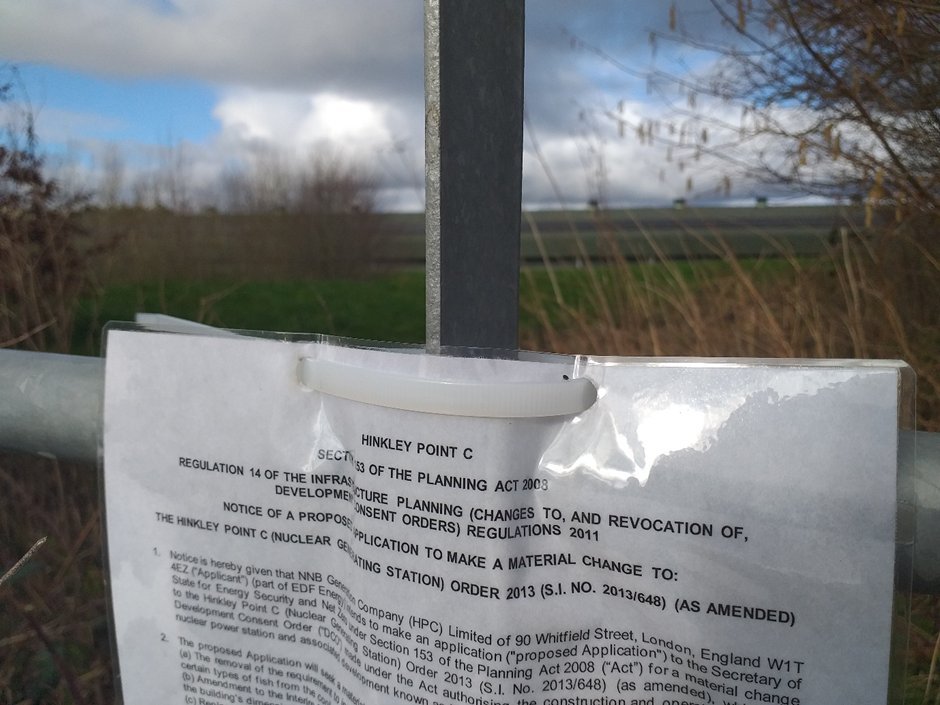Anglers Force Nuclear Industry To Reveal Its Environmental Impacts
The company responsible for building the nuclear power station at Hinkley Point C in the Bristol Channel has been told by the Information Commissioner’s Office (ICO) that it is subject to environmental information law. NNB Generation Company (HPC) Limited, majority owned by French utility giant EDF, had claimed previously to be exempt from the Environmental Information Regulations (EIR) because it was a private company. However, a challenge lodged by MSA member, Fish Legal, was upheld by the ICO last week, meaning that NNB and other operators of British nuclear facilities will now have to disclose information about their environmental impact to the public on demand.
In February, NNB consulted on its plans not to include an acoustic fish deterrent on the cooling water intake for the new Hinkley Point C in the Severn Estuary, despite independent reports estimating that 182 million fish will be pulled into the system annually and that many will not survive. Anglers, scientists and environmentalists argue that this risks extinction of local populations of already threatened and highly protected fish species such as Atlantic salmon and Twaite shad that migrate past the intake into and out of the rivers Wye, Usk and Severn.
The consultation comes ahead of a planned application by NNB to the Secretary of State for Energy Security and Net Zero to remove this fish protection measure.
Acting on behalf of local anglers, Fish Legal made repeated attempt to access information from NNB regarding its decision to exclude a fish deterrent, which the company refused. However, based on legal tests established in previous litigation brought by Fish Legal against private water and electricity companies, the ICO found that NNB is a public authority for the purposes of the Environmental Information Regulations and is therefore obliged to answer these requests.
Geoff Hardy, Fish Legal’s Solicitor who lodged the referral to the ICO said: “These private utility companies have such a huge influence on our environment and wildlife. In this case, they could jeopardize the very survival of wild salmon populations on three rivers and a multitude of species in the Severn Estuary.”
“Whatever decisions are being made about fish protection at this new nuclear plant, there needs to be full transparency. We’re glad that we’ve played a part in making that happen, not just for anglers who are worried about fish being decimated by these plans but for anyone who is concerned about huge multinationals such as this one making crucial decisions that affect us all behind closed doors.”
Penelope Gane, Fish Legal’s Head of Practice said: “Fish Legal fought long and hard through the courts to open-up the environmental impact of the privatised water industry to direct public scrutiny. We’re having to do the same with private companies operating in the energy sector who appear equally reluctant to reveal the detail and data they have about the impact of their activities on the environment”.
She added: “This finding in our favour by the information watchdog is hugely significant. In our experience, there is nothing more effective for exposing greenwashing than the ability of the public to access environmental data directly from private utilities. Let’s see what this company has to hide.”

